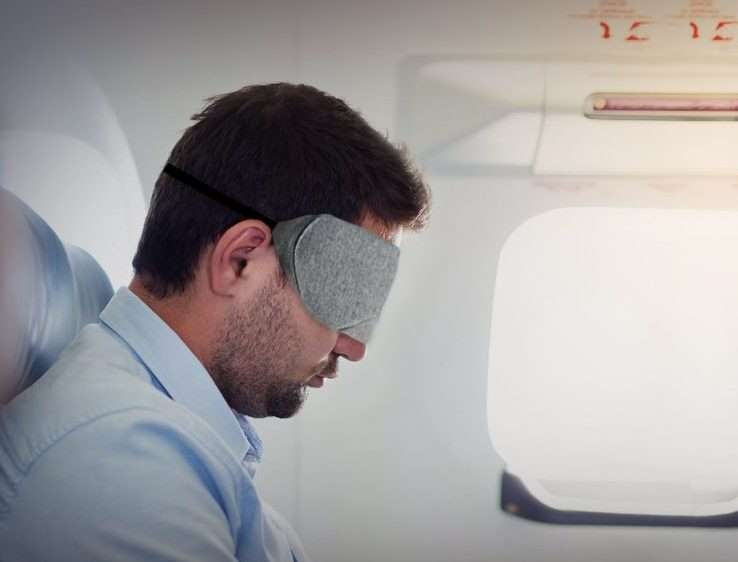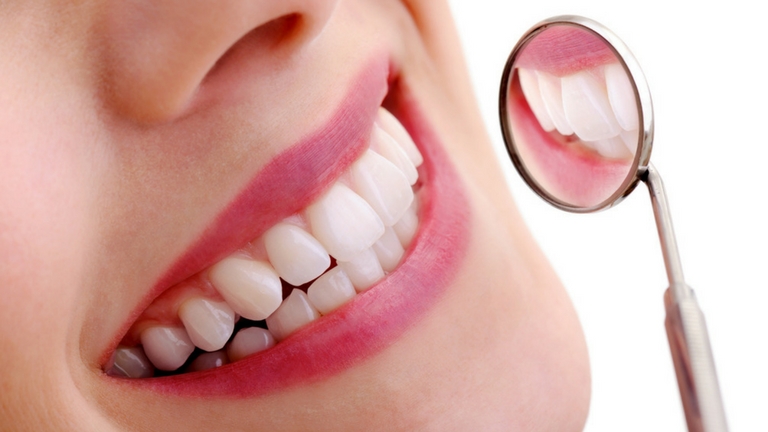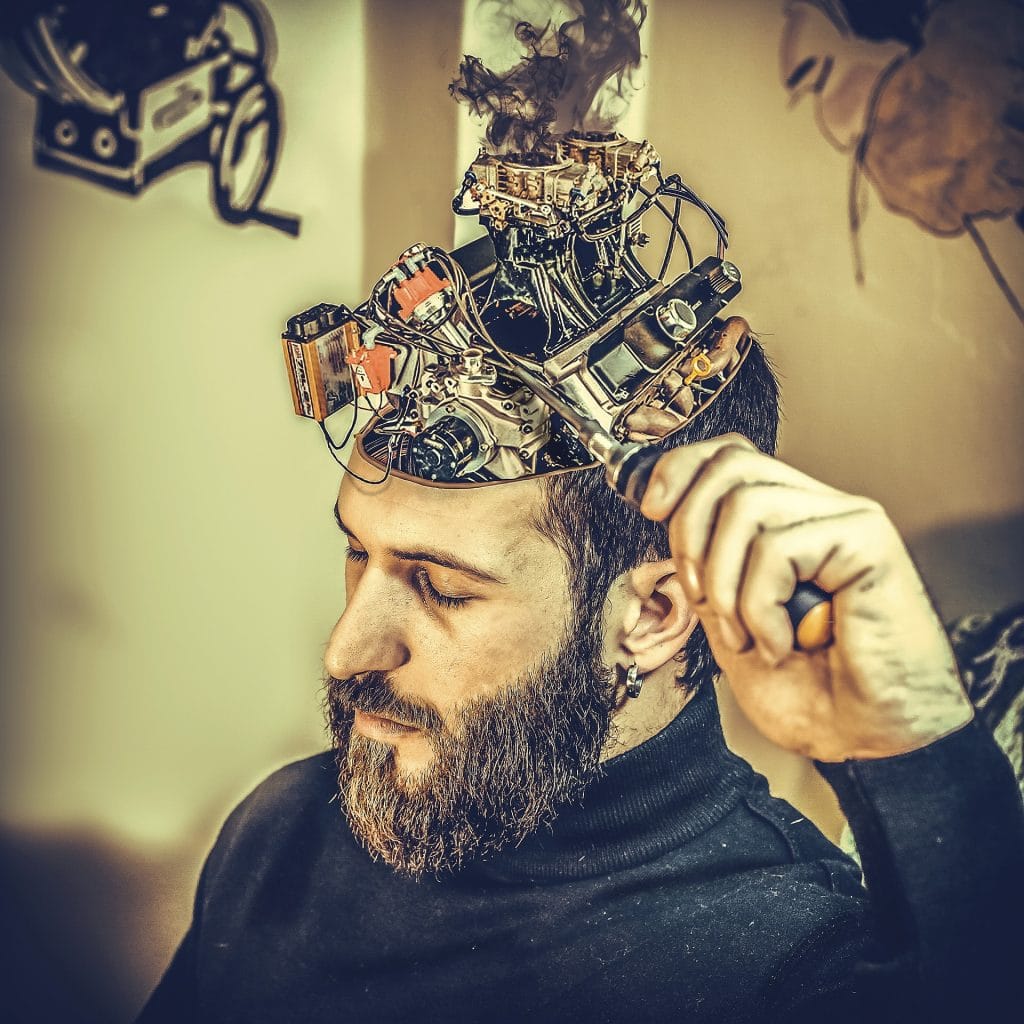Nature Knows and Psionic Success
God provides
5 Items, Sans Pillows, That Will Help you Catch Some Zs on the Plane

Sleeping on a long plane flight is something we all strive to do but is becoming more and more annoying to attempt. What with the smaller seats, crowded cabins and jam-packed lifestyles, it can be hard to just turn off your brain and fall asleep. While we all know a great pillow and even seat choice can help facilitate some Zs, there might be other helpful products as well. Some of the more obvious ones include an eye mask (our choice is not only 100% handmade but ergonomically correct) and a lightweight, soft, compact blanket that travels easily. Other, maybe less conspicuous items worth mentioning, include great tasting melatonin sleep gummies, some futuristic, noise-canceling headphones (can someone say Augmented Reality?) and even a hanging footrest. How to Stop Hair Thinning Causes of Dry Eyes These items, in tandem with your trusty sleep pillow, might be just the things you were missing to get that much-needed shut-eye on your red eye. 1. Mavogel Cotton Eye Sleep Mask The Mavogel Sleep Eye Mask is 100% handmade and uses a patented bending design making it adjustable, durable and effectively able to block all incoming light. This ergonomic mask has been designed to fit all head shapes and sizes and is made with five layers of super breathable fabric, giving you an ultra soft and fresh feeling around the delicate eye area. Other benefits include a soft cotton triangle wing design that places minimal pressure around the eyes and face and a convenient, protective carrying case. Buy: Mavogel Cotton Sleep Eye Mask $9.98 2. OLLY Sleep Gummy Chews The OLLY Sleep Gummies are made to boost your body’s natural sleep hormones to help mellow your mind and calm your senses, allowing you to relax and sleep. Scientifically-formulated, these gluten-free vitamins contain melatonin with […]
Google executives must be brought to justice for their crimes and conspiracies: Election meddling, knowledge suppression and fraud

( Natural News ) Thanks to the bombshell investigations of Project Veritas, we now have further confirmation that Google is a massive criminal enterprise engaged in election meddling, knowledge suppression and political coups. Just hours after this video went public (see below), not only did Google censor the video on YouTube (yes, Google censors videos exposing Google censorship), now Google’s executives have gone into hiding to try to run from the truth about their criminal fraud. In the bombshell video (see below), a Google executive named Jen Gennai openly admits that Google engages in massive election fraud and abuses its power to brainwash people into promoting Democrats while rejecting Republicans. This is an open admission of a massive, coordinated criminal conspiracy being carried out by Google. It also proves that Google stole the 2018 mid-term elections and swept Democrats into a majority in the House. It was all carried out via fraud, censorship and criminal activities. It’s time to arrest and prosecute all Google executives, including Jen Gennai, who is a true enemy of the people and must be located and brought to justice for her fascist crimes. Watch the video here on Brighteon, and share this link everywhere: Call your representatives in Washington (and your state Attorney General) and demand a criminal investigation into Google and the other tech giants . They are all engaged in criminal racketeering and massive fraud. Share this meme:
Why Every Entrepreneur Needs to Learn How to Defuse Fear

According to Benjamin Franklin, the only certainties are death and taxes. But with all due respect to the Founding Father, he forgot to mention something just as common, at least for entrepreneurs: fear. Fear can be an everyday state of mind for modern entrepreneurs. After all, when big problems happen, the world knows it at once and responds without remorse or filters. Even before BuzzFeed announced in January that it would lay off about 220 workers, CNN and other news outlets had already caught wind of that scuttlebutt. That left CEO Jonah Peretti in the unenviable position of explaining why 15 percent of his workforce would soon be searching Indeed and Glassdoor for new roles. No startup founder wants to experience what Peretti did. Yet everyone in a leadership position must accept that, in time, tough choices will be necessary. That realization can lead to an increase in the fear already simmering just below the surface. And, unless you shake it off, fear it can become crippling. Related: 11 Fears Every Entrepreneur Must Overcome Scared stiff in the C-suite Of course, fear is hardly un natural, especially for people struggling to keep a company afloat. Considering that the U.S. Bureau of Labor Statistics suggests that three-quarters of companies are destined to fail within a decade, it’s no surprise that entrepreneurs might break out in a cold sweat. What’s more, closing shop is hardly the only worry founders have: There’s also the threat of financial ruin and job instability; and the list goes on. Like many other entrepreneurs of his generation, my father experienced these fears as the leader of a successful company. The business was dealing with a big problem, and he asked me to solve it. So I came up with a solution, but one that involved addressing […]
Memory Boosters To Help You Stay Sharp And Remember Where You Put Stuff

If you are over the age of 50, have you had moments when have you’ve forgotten where you put key files, or lost words just on the tip of your tongue at client meetings? If so, you’re not alone. According to statistics from the US Bureau of Labor , by 2024, the labor force will grow to about 164 million people, including about 41 million people who will be ages 55 and older. And of those, about 13 million are expected to be age 65+. If you fall into any of those buckets, it’s key to maintain your memory for as long as possible, so you can be your most successful. Lynda Toth, PH.D, co-author with Pavel Yutsis, MD of Why Can’t I Remember? Reversing Memory Loss , says that stress—even from starting a second business or maintaining a side hustle— can definitely lead to memory loss. “Cortisol, which is one of the stress hormones, can be harmful because it keeps calcium in the memory pathway too long and destroys the neurons, which is very damaging to the brain," notes Toth. Other reasons include normal aging—as we age we lose neurons and neuron connections that can lead to memory loss. Dr. Toth suggests the following ways to make the most of what you’ve now got. 1) Power Up Your Smile . Remove dental fillings and replace them with porcelain or ceramic ones. The mercury in metal fillings may be harmful (some believe) and can affect the brain and nervous system, inflaming memory tissue and preventing the entry of nutrients into the cells. 2) Don’t Be a Tin Person Avoid exposure to aluminum. Don’t use aluminum pots to cook in. Aluminum accumulates in memory tissue, damaging cells. In fact, autopsies of Alzheimer’s patients show they have unusually huge amounts of […]
Modere’s Logiq™ with TetraBlend™ Coffee Wins 2019 Beauty Shortlist Award
Beauty and brain boosting, collagen-enhanced coffee blend named "Best Health Drink" by leading natural beauty blog awards LOS ANGELES, June 25, 2019 /PRNewswire-PRWeb/ — Modere’s new cognitive-enhancing collagen and hyaluronic acid-based proprietary coffee blend, Modere Logiq™ with TetraBlend™ Coffee, has won the prestigious 2019 Beauty Shortlist Mama & Baby Award for "Best Health Drink" in the awards’ wellbeing category. Modere Logiq™ with TetraBlend™ Coffee is formulated to support four key areas of cognitive function: mood, focus, memory, and healthy aging. Ingredients include Bacopa monnieri, a nootropic that supports mood, memory, and retention; L-theanine, an amino acid that works synergistically with caffeine to significantly increase alpha brain waves and support cognitive performance, including improved attention and concentration; coffee fruit extract from coffee berries to support the production of the neuroprotein BDNF, which aids learning, memory, and higher thinking; and caffeine from green tea extract and coffee to help support the brain as it ages. Modere Logiq™ with TetraBlend™ Coffee also contains multi-patented, award-winning Liquid BioCell®. The gold standard, collagen/HA (hyaluronic acid) nutraceutical delivers skin beautifying and joint-lubricating benefits alongside the coffee blend’s brain-boosting potential. Liquid BioCell® is powered by Collagen/HA Matrix® Technology, a unique, naturally occurring matrix of hydrolyzed collagen type II, HA, and chondroitin sulfate in an ideal molecular weight that the body can effectively and easily absorb deep into the skin, joints, and connective tissues of the body. "We are honored to have been recognized by Beauty Shortlist, as Modere shares their passion for clean, high-performing products that support wellbeing," said Asma Ishaq, Modere CEO. "Logiq has elicited a tremendous following since its launch. This award is a testament to its current and future success." Launched in 2014 by Fiona Klonarides, the founder of the top-ranking clean beauty blog, Beauty Shortlist, the Beauty Shortlist Mama & Baby Awards […]
How science can help you sleep better at home

According to research conducted by the National Sleep Foundation, millions of people suffer from sleep disorders or report having sleep problems a few nights a week or more. Quality sleep is the foundation for good health and is considered by many experts to even more critical than following a strict diet or daily exercise routine. While understanding sleep has proven a very difficult scientific challenge, there are still quite a lot of things we’ve figured out about sleeping. While you’re sleeping, your body works hard to flush out toxins, replace damaged cells, repair tissues and restore your energy supply. Not getting hours can lead to a deficit with long-term effects on your health, including raising the risk of heart disease, cancer, obesity, diabetes, and depression. Sleep reduces stress and blood pressure while improving your memory and helping you maintain a heathy body weight. At the simplest level, not getting enough sleep will usually make you feel really bad, whereas sleeping properly feels really good. There’s no leading a healthy life without getting enough sleep, and yet surprisingly many people don’t get enough sleep, or enough quality sleep. Read on as we look at how science can help you sleep better at home. Researchers at NASA are working hard to figure out the secret of a crucial component of life on any planet – how to get a good night’s sleep . They are looking at how the body’s natural biorhythms are affected by artificial light , whether from a bedside lamp, the overhead fixtures of a hospital room or the inside of a space capsule in the twilight between planets. Disruptions in circadian rhythm, or the body’s natural regulator for sleep and wake cycles based on a 24-hour schedule, can have a severe impact on sleep, potentially leading to […]
How to share a bed and not fall out! It’s the cause of arguments in so many marriages, so DR GUY MEADOWS shares his expert advice on how to enjoy dozing next to your partner and how to drift off like a baby

He’s the sleep doctor who couldn’t sleep. But his experience led to a revolutionary approach to curing insomnia that can help anyone get a better night’s rest. Today, in part three of our illuminating series, Dr Guy Meadows turns conventional wisdom on its head to argue against sleeping in separate beds. Today, in part three of our illuminating series, Dr Guy Meadows turns conventional wisdom on its head to argue against sleeping in separate beds Today, in part three of our illuminating series, Dr Guy Meadows turns conventional wisdom on its head to argue against sleeping in separate beds Relationships can be affected massively by a lack of sleep. The inevitable tiredness that results can make one partner snappy and withdrawn from the other. And resentment towards a loved one who sleeps well — perhaps even snoring while doing it — is common. One client, we’ll call him John, told me that separate bedrooms had become the only way he could control the jealousy, anger and even loneliness he felt watching his wife fall asleep as soon as her head hit the pillow, while he lay there wide awake. Sleeping in the spare room, he said, helped quell his resentment. It also seemed a practical solution, as he no longer needed to worry about being disturbed by his wife’s snoring or nocturnal movements. Many sleep therapists suggest moving into a separate room as part of a treatment programme. I strongly disagree with this approach — and I’ll tell you why. To encourage sleeping apart is to lose sight of how sharing a bed brings a sense of love, comfort and even safety. Don’t underestimate, either, the damage that sleeping apart can wreak on your sex life. Common sense tells you you’re more likely to be intimate with someone you […]
What Is Glutamate and Is It Good or Bad for You?

— Please Note: This article is presented for informational purposes only and is not meant to diagnose or treat any illness. If you have any health concern, see a licensed healthcare professional in person. You’ve probably heard all the warnings about monosodium glutamate (MSG), but it’s not quite the same thing as the glutamate that’s naturally produced in our bodies. That said, too much of it—via forms like MSG—may come with some unwanted side effects. Here, we break down what glutamate is and why we need it, how it relates to MSG, and if you might be consuming too much of it. What is Glutamate? Glutamate (or glutamic acid) is one of the most abundant amino acids in the human body, and the most abundant neurotransmitter (chemical messengers that help cells communicate) in the brain. It’s a non-essential amino acid, meaning our bodies are able to produce enough of it on their own. However, you can consume glutamate through a variety of foods. Which Foods Contain Glutamate? Foods naturally rich in glutamate are typically (but not always) high in protein, including: Meat Poultry Cheese Eggs Mushrooms Soy and soy sauce Tomatoes Grapes Fish sauce Broccoli Peas Walnuts Bone broths Glutamate is also the main amino acid found in human breast milk, which points to its significance for brain development in infants ( 1 ). Other foods, especially processed foods, contain a synthetic version called monosodium glutamate (MSG). We’ll get more into the controversy around MSG later. What Does It Do? As an amino acid, glutamate is used to build proteins, but it has another important job as a neurotransmitter. Glutamate is mostly concentrated in the brain and central nervous system, and functions as an “excitatory” neurotransmitter. Just as it sounds, an excitatory neurotransmitter “excites” or stimulates cells. Glutamate sends […]
Hypertension treatment may slow down Alzheimer’s progression

Researchers have found that nilvadipine, a drug that doctors regularly use to treat hypertension, may help people with Alzheimer’s disease by increasing blood flow to the brain. New research suggests that a high blood pressure drug may slow down the progression of Alzheimer’s disease. Alzheimer’s disease is the most common form of dementia . This progressive disorder causes the degeneration and, ultimately, the death of brain cells. People with dementia experience cognitive decline, and have issues making judgments and performing everyday tasks. Dementia affects millions of people worldwide. According to Alzheimer’s Disease International, the number of people with dementia was close to 50 million n 2017 , and the organization say this number will almost double every 20 years, reaching 75 million people by 2030. In the United States, Alzheimer’s disease is the sixth leading cause of death . Researchers have been looking for treatments to slow the progression of the disorder and recently found that the hypertension drug nilvadipine may have positive effects on the cerebral blood flow of those with Alzheimer’s disease. The results appear in the journal Hypertension . How nilvadipine affects cerebral blood flow Nilvadipine is a calcium channel blocker that leads to vascular relaxation and lowers blood pressure , and people often use it to treat hypertension. The objective of the latest study, which included 44 participants with mild to moderate Alzheimer’s disease, was to find out whether nilvadipine could slow the progression of the disorder. "Even though no medical treatment is without risk, getting treatment for high blood pressure could be important to maintain brain health in patients with Alzheimer’s disease," says Dr. Jurgen Claassen, Ph.D., associate professor at Radboud University Medical Center in Nijmegen, the Netherlands, and lead author of the study. The researchers randomly gave nilvadipine or a placebo to the […]
3 Tips & 8 Seconds that Change the Emotional Climate of your Team

Scrum Masters, ask yourself – Are you a natural servant leader, or do you struggle to be the inspiring coach that creates high-performing teams? If you have a real desire to change and are ready for some tough self-reflection, this article may inspire you, and give you hope that you can influence major changes, by starting with things that are within your control. You might find that focusing on how your own behavior is impacting others can change the emotional climate in your team – and positively impact your career. (Do you secretly think the issues on your team are all about the Product Owner? Share my Emotional EQ for Product Owners article.) The following blog is inspired by Scott Watson’s work, an emotional intelligence speaker and trainer. I hope they will complement what you are already doing well and help you create a tactical plan to improve your own emotional intelligence and the emotional climate in your team. 1. Physician, Heal Thyself WE TEACH PEOPLE HOW TO TREAT US As a leader, you must overcome any of your own emotional insecurity and speak up, even if you might have a personality that shies away from conflicts. It’s not about standing up to others; it’s about finding your voice. If you cannot speak up for yourself, how can you defend your team? An easy practice to check-in with your emotional self, is to track the amount of times you re-run your memory of a particularly uncomfortable scenario that occurs on a regular basis. For example, you might have a friend or teammate who consistently shows up late to an appointed meeting, abusing your efforts, or those of your teammates, to arrive on time. They might slide in, late again, and say something like “Oh, so sorry I am late. […]
Sleep Impacts Your Wellbeing And Mental Health, So Here’s How To Improve Your Slumber
© Credit: Sleepeezee Leading a busy lifestyle, and having a demanding career and social life can often mean that your sleep gets sacrificed. As a result, your lenience to caffeine may build up, and you can get trapped in a cycle of feeling tired, run-down and lethargic. But scarily, did you know that lack of sleep can have even more detrimental effects on your wellbeing and mental health? According to the report ‘Sleep Matters: The Impact Of Sleep On Health And Wellbeing’¹, ‘people who have slept poorly are likely to suffer from fatigue, sleepiness during daytime, poor concentration, irritability, memory loss, depression, frustration and a weakened immune system. [In addition], poor sleep can negatively impact on people’s daily lives, with inevitable consequences for mental health. People who are suffering the effects of low mood, who have less energy to exercise, or are experiencing difficulty in personal relationships are more likely to develop mental health problems.’ “Sleep isn’t just about sleep, it regulates our circadian rhythms and hormone levels," explains Dr Ranj Singh, doctor, TV presenter and Sleepeezee ambassador. "There are certain hormones that are secreted at night time and they need the chance to work. If sleep is disrupted, hormone levels can become disturbed which can effect growth, tissue repair and even fertility – it’s all related. Sleep is not just about just feeling less tired, it’s about conditioning your body to function optimally.” Having a good night’s sleep, on the other hand, has been proven to help repair and restore your brain and body, and put you in a better mood. But we know what you’re thinking: does a good night’s sleep even exist anymore, what with modern life’s high-stress levels?! It can, if you make some simple lifestyle changes to encourage a restful, undisturbed slumber. How To […]
Why Every Entrepreneur Needs to Learn How to Defuse Fear

Fear is a time bomb. Here’s how to MacGyver your way out of dread’s grip and become a more confident leader. Opinions expressed by Entrepreneur contributors are their own. According to Benjamin Franklin, the only certainties are death and taxes. But with all due respect to the Founding Father, he forgot to mention something just as common, at least for entrepreneurs: fear. Fear can be an everyday state of mind for modern entrepreneurs. After all, when big problems happen, the world knows it at once and responds without remorse or filters. Even before BuzzFeed announced in January that it would lay off about 220 workers, CNN and other news outlets had already caught wind of that scuttlebutt. That left CEO Jonah Peretti in the unenviable position of explaining why 15 percent of his workforce would soon be searching Indeed and Glassdoor for new roles. No startup founder wants to experience what Peretti did. Yet everyone in a leadership position must accept that, in time, tough choices will be necessary. That realization can lead to an increase in the fear already simmering just below the surface. And, unless you shake it off, fear it can become crippling. Scared stiff in the C-suite Of course, fear is hardly un natural, especially for people struggling to keep a company afloat. Considering that the U.S. Bureau of Labor Statistics suggests that three-quarters of companies are destined to fail within a decade, it’s no surprise that entrepreneurs might break out in a cold sweat. What’s more, closing shop is hardly the only worry founders have: There’s also the threat of financial ruin and job instability; and the list goes on. Like many other entrepreneurs of his generation, my father experienced these fears as the leader of a successful company. The business was dealing with […]
Startup founder says CBD and nootropics snacks are a ‘no-brainer’

A CBD and nootropics startup is selling snack bars that offer the best of functional food and clean eating with added biohacking benefits. Just two years ago, British entrepreneur JD Furlong was working as a producer and distributor of vegan raw tray bakes to independent cafes but his true interest lay in the health benefits of CBD. It was this interest that led him to seek the help of Jonathan Nadler, production director for European Cannabis Holdings, to realise his vision of bringing the health benefits of CBD to the mass market through convenient healthy bakes. But their mission didn’t end there. Furlong explains: “We also wanted to add a nootropics elements. This new category of health ingredients had caught my eye from speaking to friends struggling to keep up with deadlines and hearing about what a big following nootropics had with American students. “I knew this element would work really well alongside the CBD as all the health benefits can be provided through natural ingredients and we knew we could potentially enhance the benefits of CBD through certain nootropics.” Big market for biohacks Nadler says the business idea of creating natural snacks that ‘fuel the mind’ felt like a ‘no-brainer’. Nooro bar He says: “It was obvious to us there’s a whole generation of shoppers looking for biohacks and that CBD is an effective ingredient to enhance food and we needed to find a more convenient way for people to get the benefits of CBD. “For us the on-the-go snacks fixture is polluted with bars full of rubbish, usually full of sugar and usually the ‘healthy’ bars are just concentrating on fibre and protein. “But what we should really be looking for when we’re busy and on the go is something that enhances […]
Recently Succeed At Something? Celebrating Is Good For Your Brain

"Celebrate!" This three-syllable, nine-letter word is a familiar concept yet a relatively alien practice for many of my coaching clients. “Who, me? Celebrate?” is generally the response to my question, “How are you planning to acknowledge yourself for this accomplishment?” Rather than taking time to bask in the glory of their latest achievement, they’re already moving on to the next big thing. High achievers, please note: This behavior is not healthy. Regardless of the size of your accomplishment, you should take time to recognize it, relish it and figure out how you can replicate some or all of the steps for future successes. Your brain’s reward system will automatically help you do this — if you let it do its work. Even better, you can easily boost yourself and your brain to prepare for more successes. All too often, though, individuals will interrupt the workings of their brain’s reward system, either ignoring the “feel-good” natural chemicals their brain releases or becoming addicted to them along with stress. Both situations cause trouble for individuals and their team members. Before addressing the trouble and how to overcome it, let’s cover some basics about the brain’s reward system. As an example, say you hit a project milestone on time and on budget and note your accomplishment. You get a hit of dopamine , the “feel-good” chemical. Dopamine acts as a neurotransmitter, sending signals to other neurons that serve as a pleasurable reward. These neurons that fire together now start getting wired together in your brain. YOU MAY ALSO LIKE When you experience the dopamine reward, your brain pays attention to what you did to deserve your “feel-good” moment. That includes the brain calculating what’s needed to repeat that action and move toward achieving your goals. The dopamine also plays a role in […]
Ditch the Prosecco and eat more cauliflower – 11 smile secrets Britain’s top dentists want you to know

Gum disease and tooth decay aren’t pretty and now poor oral hygiene has been linked to Alzheimer’s – but these simple smile hacks you can literally make tonight Most of us brush our teeth daily. But did you know the way you clean your teeth might have an impact on your chance of developing Alzheimer’s? Researchers at the University of Bergen in Norway have discovered a clear link between gum disease (gingivitis) and the brain disease. ‘We discovered DNA-based proof that the bacteria causing gingivitis can move from the mouth to the brain,’ researcher Piotr Mydel at Broegelmanns Research Laboratory, Department of Clinical Science, University of Bergen (UiB), told Science Daily . The bacteria produces a protein that destroys nerve cells in the brain, ultimately leading to a poorer memory and Alzheimer’s. These bacteria aren’t the only cause of Alzheimer’s, says Mydel, but their presence is a clear risk factor. The good news? Good oral hygience can slow down Alzheimer’s and the researchers at Bergen university are developing a drug to block the harmful affects of the bacteria. But rather than get to that point where gum disease is a serious problem, what should we be doing to prevent it? We asked some of Britains top dentists for their tips: Smile secret #1 Follow the two-minute rule If you’re one of those people who falls into bed without brushing your teeth. Or dashes out the door thirty secionds after jumping out of bed. I’m sorry but it’s time to slow down in the bathroom. We should all brush twice a day for two whole minutes, says Dr Mihir Shah, DenTek dentist and Head Dentist at Battersea Park Dental. Two minutes doesn’t sound like long but trust us it’s longer than you think. Shockingly, 1% of adults NEVER brush their […]
Why Are Nootropics So Popular?

The brain is one of the most vital organs in our bodies. Without it, we lose ourselves, and we no longer exist. Its job is to perform many functions during our life. But, sometimes the mind gets blocked and prevents us from doing even the smallest tasks that we have a particular day. This is quite normal and unusual. Sometimes the brain needs rest to function correctly. There are periods in life when you can lack focus and concentration. The whole process is somewhat frustrating because you can’t seem to focus on things that are right in front of you. For example, you have to study for an important exam but can’t seem to concentrate. This leads to getting a horrible grade or failing the exam completely. Click here for more. Human nature doesn’t allow you to be alert and motivated always. Sometimes you have bad days. But what if during those bad days you have work, task, and chores to do? For example, your boss requires a project handed to them by a specific deadline. In this situation, you need to stay sharp and finish it as soon as possible. But how? You’re experiencing headaches, anxiety, lack of concentration, etc. Luckily, there is a solution for those that want to become more productive in a much faster way. Scientists have invented nootropics to boost everything that you’re lacking. They are becoming more and more popular as time passes by. Here are some of the main reasons why they’ve gained so much popularity: Memory improvement Sometimes you just have to memorize a couple of things. Or, you have an exam and need to remember a lot of definitions, formulas, and equations. This can be challenging for you if you have a terrible memory. Listen, not everyone is born with […]
Nama Introduces Pure and Easily Absorbable Ayurveda Herb, Ashwagandha
June 23, 2019 – The herb Ashwagandha has multiple benefits of health and well-being. Online store Nama has brought out an easily absorbed and completely organic brand of Ashwagandha in the form of capsules. With the organic extract of Ashwagandha and black pepper for better absorption, this product is meant to ease anxiety, bust stress and support good health. The Nama Ashwagandha is completely vegan and premium quality formulation. Part of the Ayurveda tradition, Ashwagandha is known as a powerful herb, and used since ancient days for a range of maladies. The herb is an adaptogen, helping body manage stress by reducing cortisol, the stress hormone. The herb has also been studied medically in over 200 studies for its healing benefits. “I am passionate about living a healthy life and only consuming pure and natural products. Our Ashwagandha product is formulated with the highest level of purity, safety, and quality ingredients. NAMA Ashwagandha is Certified Organic by UDAF,” said David Cuellar of Nama. Ashwagandha is used for its anti-stress and anti-anxiety effects, and the formula is meant to reduce panic attacks and chronic fatigue. It is good for relaxation, balancing mood swings and addressing depression. It also helps reduce inflammation and joint pain, regulate blood sugar, and improve brain function and memory. According to some studies, Ashwagandha can help reduce inflammation by acting against free radicals. The Nama Ashwagandha is a non-GMO product made from pure sources, and manufactured and packed in the US at cGMP certified and FDA approved facilities. The herbs are all natural and do not contain artificial ingredients. The product is available from Amazon with 100% money-back guarantee. For more information please visit: Ashwagandha on Amazon Media Contact Company Name: GetNama Contact Person: David Cuellar Email: Send Email Country: United States Website: www.getnama.com
Caring for Your Aging Parents

I’m in what should be the prime of my life: 44 years old, good health, good marriage, good job, (mostly) good kids. But this phase of life—my turn to be in the middle of the “sandwich generation”—feels far from easy. While my children no longer need diapers or permission slips, they do have harder math homework and driver’s licenses and big-kid problems. Then there are my parents: They’re still independent and managing their own care, but over the past few years, the physical, emotional and mental signs of their aging have become undeniable. Watching my parents grow older and more fragile has been harder than I ever imagined. And now, as I begin to face the questions and issues that come with that, I realize I need help. If you, like me, are caught between driving around your aging parents and teaching your kids how to drive, you might find this expert advice helpful too. How can I support my parents if I don’t live near them? Technology can bridge the miles when you can’t, says Jenni Levy, MD, an advance-planning and end-of-life care advisor in Allentown, PA. The key, she explains, is to use it to actually see your parents on a regular, scheduled basis using whatever app or device works best for them. This could be something like Skype or FaceTime on a smartphone or tablet. But be prepared: Even after they get the hang of it, approximately 85% of your conversations might be on the topic of ?“the FaceTime,” “the Skype” or the evils of newfangled technology. You also run the risk that your parents might learn Facebook too well and send you cat videos all day. But your patience will be rewarded. According to Levy, actually laying eyes on your parents will give you a […]
Brainwave Manipulation

Artwork by Aytuguluturk Electroenephalography (EEG) is the measurement, in real-time, of brain waves. It requires the use of electrodes that are placed on the scalp. An amplifier and a visualization software are then used to graph the brain’s electrical activity. EEG graphing hit the mainstream recently, with several consumer-grade sensors becoming available, some for as little as $100. The non-invasive sensors are placed on the scalp and forehead. Clinical-grade caps include far more sensors than their cheap counterparts and pick up electrical activity from the 8 major brain regions, which are: the frontal, parietal, occipital and temporal lobes, as well as the limbic system, the brain stem, the cerebrum and cerebellum. Together, these eaves-dropping sensors give us a picture of what’s going on in someone’s head in real time. Cliniciams have learned not just to measure but to also manipulate brainwaves in non-invasive ways. In Neuropsychology, therapists use methodologies like LENS , Transcranial Magnetic Stimulation , or learning-based neurofeedback , to alter undesirable brain states. These methods can help people with a myriad of issues like chronic pain, anxiety, depression or PTSD. The Monroe Institute , founded more than 30 years ago by Robert Monroe, pioneered an auditory method for alternate brainwaves, using Bianaural Beat technology. Monroe and his students claim that by using binaural beats in controlled conditions, we can learn to access higher states of consciousness, leave our bodies and engage in boundless astral travel . While this claim is quite radical, the therapeutic power of brain entrainment using binaural technology is not. If you’re interested in any form of mental or physical self-mastery, you’ll want to know about brain waves and what they have to teach us about cognition. And you’ll be interested to know that manipulating the electromagnetic activity of our brains does in fact […]
Brain Boosters: Pills and Potions.
The task of building a better mousetrap just got a lot harder. Scientists at Princeton University recently created a strain of smarter mice by inserting a gene that boosts the activity of brain cells. The mice can learn to navigate mazes and find or recognize objects faster than run-of-the-mill rodents. The news, announced in the Sept. 2, 1999 issue of the journal Nature , raises the possibility that genetic engineers may someday be able to help humans learn and remember faster, too. But inserting genes into humans to increase intelligence is a long way off, researchers say. So is there anything we can do in the meantime to boost our brain power? The answer is yes. But the best way to do it may surprise you. When many of us think of memory enhancers, we think of ginkgo biloba , the herb that now generates more than $240 million in sales a year worldwide. The October 22-29, 1997 issue of the Journal of the American Medical Association reported that Alzheimer’s patients who took 120 mg of ginkgo showed small improvements in tests designed to measure mental performance. Despite its popularity, however, there’s no solid evidence that ginkgo can help healthy people concentrate or remember more clearly. Also, because ginkgo thins the blood , some scientists are concerned that taking too much of it could prolong bleeding, or even cause bleeding in the brain . Another promising "smart pill" is phosphatidylserine, or PS, a natural substance that helps cell walls stay pliable and is thought to boost the effectiveness of neurotransmitters, which relay brain signals. In a May 1991 study published in Neurology , neuroscientist Thomas Crook found that patients with age-associated memory impairment improved their scores on key performance tests after 12 weeks on PS. Yet more research is […]
